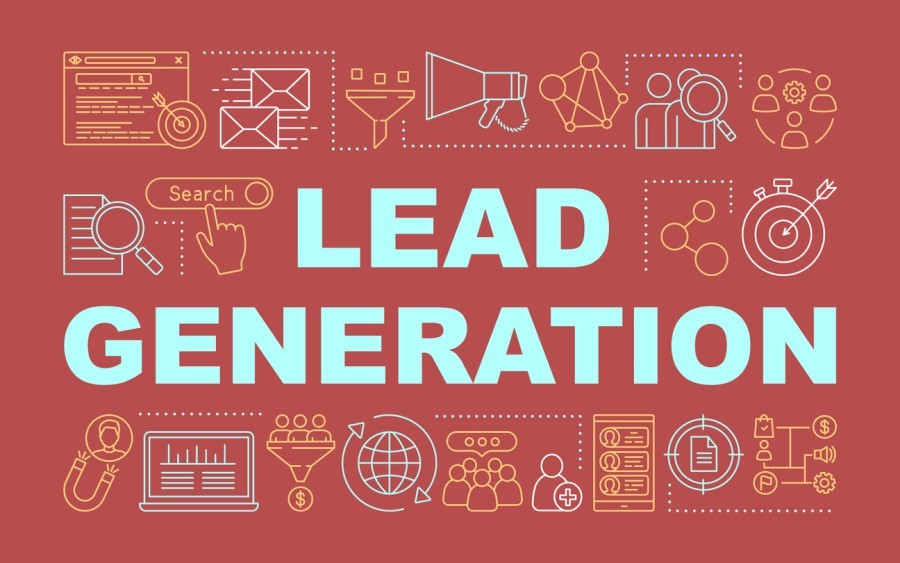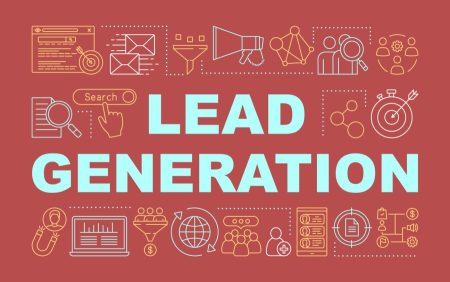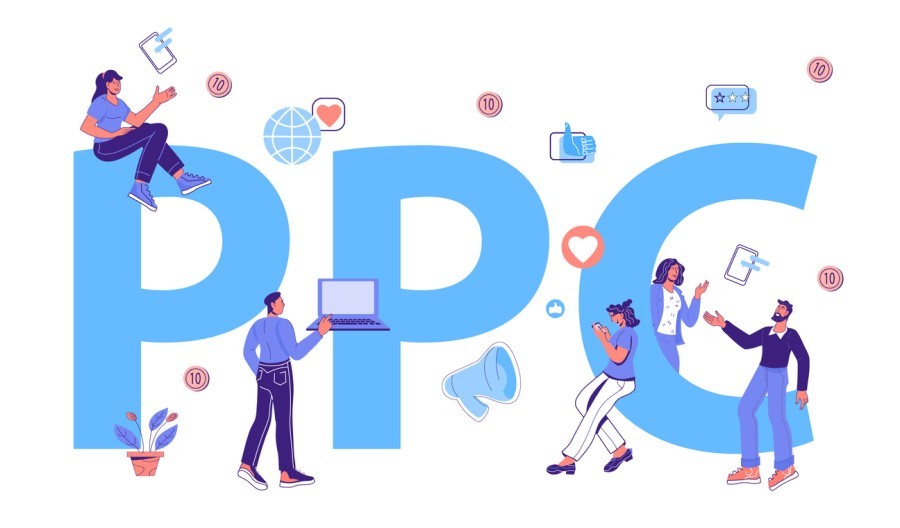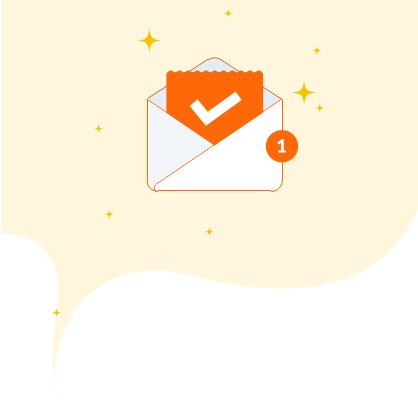
Ever wondered how some people seem to have an innate gift for converting everyone they speak to into a lead or a sale? Well, for most of us, replicating the impossible is a challenge in itself.
Yet, there are many strategies you can use to turn every conversation with a potential customer into an opportunity to generate sales leads. Nothing is stopping us from observing how the best professionals generate leads not only in quantity but also in quality and making their techniques our own. The question then becomes, how do I emulate their lead generation strategies?
So if you’re wondering how to generate leads and how to boost sales, the top 15 professional lead generation techniques used by companies that have mastered the art of lead generation will get you will on your way.
 1. Provide a Colorful Unique Selling Proposition (USP)
1. Provide a Colorful Unique Selling Proposition (USP)
Generating leads that will become customers is a key part of the marketing process. Your prospect has to go through a buying cycle before they become a customer. The buying cycle focuses on different phases: awareness, consideration, preference, sale, and loyalty. So to generate more leads, focusing on the first half of the process is essential.
Trying to offer everything under the sun and marketing a USP you can hang your hat on is a tough ask. But what you should be doing is choosing a handful of key benefits derived from your core competencies and push these to the fore. Not only must you deliver what you promise, but you must also ensure that your product or service is unique enough to make a mark.
For example, you can never go wrong with offering guaranteed high-quality services. It is something that customers can relate to, be it a service, product, or if you’re a consultant. Show your customers you’re the best, and they’ll have no qualms about passing you their details.
2. Encourage Both Free and Paid Leads
Paid leads not a new concept. Most people lean towards capturing emails without the lead paying anything before leaving their details. But remember, not all leads need to be free. The best example of this is a pre-order for a product or service.
Crowdfunding for generating leads is a fantastic way to kill two birds with one stone, as they say. It generates a database of leads you can market to that are so invested in your business that they’re prepared to put money down in advance before the end product or service comes out.
At the same time, you raise the capital to develop the product or execute the result with the best marketing and operations available.
Thus, it is important to get involved in this industry and put a lot of effort into choosing the right crowdfunding platform. A crowdfunding platform that does not have all the bells and whistles in place may still work well enough to generate leads, but you will have to sell yourself extra hard.
3. Conduct Market Research to Know Your Target Lead Profile
You’re not only setting yourself up for failure if you don’t show your customers how they can enjoy investing their time with you but also your bottom line. That’s because you’ll lose out on the chance to build trust and rapport with them, as well as selling them a dream that may not be possible. So try to provide more than a list of features and benefits. Explain why your company is the best at what it does and why people should choose you over competitors.
And finally, create an irresistible call-to-action so that your leads become customers faster. This should embrace any existing data to encourage more data for a more accurate campaign next time. So it’s important to understand which data matters and which doesn’t. An example is looking at data that focuses on the quality of leads generated instead of quantity.
For example, many high-quality leads are better than a thousand low-quality leads. After all, it’s easier to follow up with ten high-quality leads and convert them into sales than it is 100 low-quality ones.
4. Exist on Social Media Platforms
We’ve all heard it time and time again, but you can’t underestimate how important social media is when looking to grow your business. It’s not hard to see why Facebook, Twitter, Instagram, and other platforms are so popular.
They offer a direct channel of communication between your business/products/service and your target audience. Not only is it a great way to get in touch with the right clients, but it also serves as a great marketing platform to attract leads and promote your brand.
Social media allows you to create an engaging experience for your leads. They can interact with you, ask you questions, and engage using comments, likes, and shares. Not only does it make the conversation more enjoyable, but you can also use it to provide them with more information, and their questions get answered at speed.
You can also leverage the power of social media when doing competitions and engaging in conversations that allow you to find out what topics are currently trending.
For example, TikTok has challenges that allow users to engage with companies to promote their products and services or leave emails for competitions. With this knowledge, you’ll be able to target your leads better with the products they need.
5. Engagement-Focused Social Media Strategy
As much as you want to see the value of social media when it comes to generating leads, in many cases, people don’t get results from a page only. Of course, you might be using the wrong platform, but even you aren’t, you should still make sure you’re giving your prospects an engaging experience.
If all you’re doing is promoting and not providing value, they want to hear from you. You must use the platform well, thus ensuring that your potential customers can trust you and want to interact with you.
Social media platforms are great for generating leads because they allow you to contact your audience directly. These connections improve by using various apps or automated scheduling, such as Buffer, allowing you to post content at optimal times when people see it.
The problem with social media is that the algorithms change so often that your audience might not see your post when you post it. It leads to wasted potential and low conversions on those potential leads. And more social media platforms than ever are shifting towards conversational preference.
Once upon a time, it was about how many likes and followers you have, but nowadays, platforms such as TikTok push videos out to those that get commented on and shared by more people, generating valuable content and conversation while inspiring creators to post higher-quality videos.
6. Use Your Network to Find Prospects That Can Help You Grow Your Business
Depending on whom you work with, you may already have a network of people to tap into for referrals. Leveraging this network can be one of your most powerful leads generation techniques.
Yet, you can’t ask people to give you their contacts. Instead, it would help if you kept your connections warm (interested) to help other people and provide value for them to reciprocate the favor.
Yet, if you find that you’re still starting from scratch and have no one to refer to, don’t worry. Your job title alone is a great talking point when networking with other professionals. You can even offer your services for free to gain exposure, whether it is a trial run or an actual paid project. These are all great ways of generating leads and showing people in your network what you can do. If you have a blog, the content can help to attract leads.
You can even ask people to share your content on social media. For example, you could ask them to comment with their name and website link on their pages. Once you start seeing success, you’ll have no problem getting referred to others who can help grow the business.
 7. Create a Lead Magnet
7. Create a Lead Magnet
Lead magnets are a little different from a USP. The USP is more about providing the key information to the potential lead. The lead magnet is the reward that you offer them in return.
The lead magnet is a lead capture tool you can use to gain information about their pain point and what keeps them up at night. That way, you’re better equipped to understand how your service or product can benefit them. The best example of this is questionnaires, giveaways, and competitions. These are great ways to do market research.
The more you understand what your potential leads do in their spare time, the easier it becomes to see whether there’s a demand for your product or service. Not only can you get the number of leads, but the quality is also verifiable in the data provided when generating the lead.
That way, you can categorize your new leads based on your end goal. Some may provide a greater sense of urgency or potential conversions than others. Thus, you can create tailored marketing campaigns for each group with different funnels to maximize your chances of closing a deal with a lead.
8. Be Available on the Go
Your website is crucial to your potential prospects and the number of leads you can generate. More people use mobile devices to consume data than desktops these days, so taking advantage of mobile-optimized apps and websites is a must for generating leads, especially if your demographic is Business To Consumer (B2C).
Mobile-friendliness also means that people are more likely to read your content on the go. There isn’t time to sit down and read an article or an email. Thus, maximize your potential by creating a mobile-optimized website and update it fast.
And as far as mobile-optimized goes, try using a responsive design for your website so that it isn’t hard to digest through any screen size. It will ensure that your website loads fast on smartphones, tablets, or desktops. This way, you’ll be able to get in touch with your leads wherever they are.
9. Find a Mentor and Create a Relationship With Them
The old saying is true: there’s strength in numbers. The more people you talk to and get in front of, the better your chances are of growing your business, and the more you will be able to influence others to do the same. This data is no different, especially at this current moment in time.
A mentor is one of the best ways to get ahead in generating leads and growing your network. But, you have to be willing to wait and be patient for it all to come together. It’s a long-term investment, but the return on your investment will be worth it.
A mentor can help you build a strong network, especially if they are in a similar position or have come from a similar background. And, aside from using their connections while supporting you in enhancing yours, the very fact that a respectable mentor is onboard provides validity and credibility to what you’re doing, particularly in the business-to-business community (B2B).
10. Conduct Extensive Competitor Research
In the digital age, it’s not hard to start a brand from scratch, given the availability of tools and platforms to help you. But here’s one trap that most businesses fall into, thinking their product or service is original and unique. There are quite a few other businesses out there who are replicating the same but without the publicity (marketing).
When it comes to lead generation, put yourself in your prospect’s shoes. Consider what they need and how you can provide that for them. Would they rather go with the competition if given a choice? If so, then you’ve got a problem on your hands: being able to stay ahead of the curve.
From there, use Google Alerts to keep a lookout on the market for your competitors. Follow them on social media channels and see what triggers them to react. You’ll gauge where your strengths and weaknesses lie in your marketing efforts and what you need to do to improve on these.
11. Create a Landing Page That Will Convert the Lead Into a Sale
A landing page is a lead generation technique where you can convert existing leads into sales. Marketers have been using landing pages for years, and it’s an effective way to connect with their audience and let them know what’s available for them.
For your landing page to be effective, it should showcase the best of what you have to offer, providing the necessary information and resources for your potential leads. In any SEO campaign for example, quality landing pages are a must for lead generation, as they require a strong call-to-action to encourage the customer to enquire.
Your landing page will most likely be your website, but it could also be an email or a direct message to someone who has reached out to you. That works because people usually trust and believe in the person with whom they are communicating.
A brilliant example of a landing page is the pages that allow you to post several links to products and services on a social media bio. The most popular of these is a linktr.ee page, which allows users to use one link on an Instagram bio to host all their others. The page serves no other purpose other than encouraging the user to click where they want to go next (or leave their details), thus converting the visitor to the process.
Whatever it is, make sure you have all the information your potential leads need for them to take action. This will ensure that they see what benefits they stand to gain due to doing business with you and that your website is everything they need.
12. Use PPC (Pay-Per-Click) Advertising For Your Business to Expand
PPC is an advertising model that allows advertisers to bid on ad space on a search engine. The bidding focuses on keywords, allowing the advertiser’s ads to be more relevant.
PPC is popular in social media, where targeted advertising allows you to engage in the largest outreach in whatever location you see fit. PPC is popular because it’s fast and easy to track results. Clicks from PPC ads lead straight to a conversion instead of the traffic generated from “organic” or “editorial” sources, which is more difficult to quantify.
You can always use PPC to generate leads and then write blog posts to convert them into high-quality sales while publicizing them in an email newsletter.
Organic search (such as blog posts that aren’t paid to promote) is also a fantastic way to generate leads. But they’re a long-term game. If you want a quick fix, then PPC is the way forward.
13. Seek to Outsource Your Lead Generation Efforts to Professionals
Outsourcing is one way of ensuring that you don’t have to do everything yourself. That is the case when it comes to lead generation. Many companies and professionals have a wealth of knowledge gathered from years of experience, which means you enjoy all that knowledge by outsourcing some of the tasks they handle to them.
While outsourcing is usually done in areas where a business or individual lacks the expertise and staff to handle certain things, sometimes going with a digital marketing partner is more efficient and cost-effective. Some people may do something cheaper, faster, and better than you can do it yourself.
Outsourcing the lead generation process means that you can focus on other areas of your business where you’ll achieve higher ROI. For example, if you have a good marketing team, they should improve the website, SEO, and other aspects of your business that helps you achieve better results.
14. Focus on How to Manage Your Leads Well
Save time by using tools with optimization for leads like lead generation dashboards, CRM software, and other white-label services. A lead generation dashboard allows you to view and track your entire lead generation process, from advertising campaigns to the content people want.
You can use lead generation software such as HubSpot, a CRM tool that helps you be in touch with your leads and close more deals.
This CRM tool also allows you to track your leads in real time. That way, you are always on top of what leads you to pursue next. It also allows you to generate reports that help you know what works and what doesn’t.
Lead generation isn’t only about finding contacts or sending emails. It’s also about tracking those leads and keeping in touch with them so that you can keep them updated on new information, products, and services. This leads to higher conversion rates and sales, so invest in a good CRM that allows you to keep track of these leads, so you don’t lose them to your competitors.
15. Be Yourself
Lead generation is about sharing your knowledge and expertise so that others can benefit. This is when you should be yourself.
Of all the lead generation methods, authenticity is the best. People can see right through fakeness. You get credibility from being who you are. Many will say there are limits and boundaries. But so what?
The best way to learn is to make mistakes. Being yourself will most likely backfire on you in the beginning when people aren’t willing to respect you. But over time, you will start to build trust, and people will be more willing to open up to you.
Professional Lead Generation Techniques Are Tried and Tested
Professional lead generation techniques are hard. They require creative thinking to engage leads so that no others have done so before. For some, it’s not their cup of tea. So, how can you make it easier? It’s possible to outsource tasks to professionals. Or you can start small and ramp up over time. Remember: the goal is building your brand and capturing high-quality leads as well as possible.
If you need someone to help bring your business to life with more quality leads, then get in touch today and see how we can grow your customer base in no time!
 1. Provide a Colorful Unique Selling Proposition (USP)
1. Provide a Colorful Unique Selling Proposition (USP) 7. Create a Lead Magnet
7. Create a Lead Magnet


